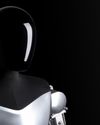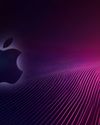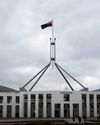
Three engineers — Jensen Huang, Chris Malachowsky and Curtis Priem — gathered at the diner in what is now the heart of Silicon Valley to discuss building a computer chip that would make graphics for video games faster and more realistic. That conversation, and the ones that followed, led to the founding of Nvidia, the tech company that soared through the ranks of the stock market to briefly top Microsoft as the most valuable company in the S&P 500 last week.
The company is now worth over $3.2 trillion, with its dominance as a chipmaker cementing Nvidia’s place as the poster child of the artificial intelligence boom — a moment that Huang, Nvidia’s CEO, has dubbed “the next industrial revolution.”
On a conference call with analysts last month, Huang predicted that the companies using Nvidia chips would build a new type of data center called “AI factories.”
Huang added that training AI models is becoming a faster process as they learn to become “multimodal” — able to understand text, speech, images, video and 3-D data — and also “to reason and plan.”
“People kind of talk about AI as if Jensen just kind of arrived like in the last 18 months, like 24 months ago all of a sudden figured this out,” said Daniel Newman, CEO of The Futurum Group, a tech research firm. “But if you actually go back in time and listen to Jensen talking about accelerated computing, he’s been sharing his vision for more than a decade.”
Bu hikaye Techlife News dergisinin June 29, 2024 sayısından alınmıştır.
Start your 7-day Magzter GOLD free trial to access thousands of curated premium stories, and 9,000+ magazines and newspapers.
Already a subscriber ? Giriş Yap
Bu hikaye Techlife News dergisinin June 29, 2024 sayısından alınmıştır.
Start your 7-day Magzter GOLD free trial to access thousands of curated premium stories, and 9,000+ magazines and newspapers.
Already a subscriber? Giriş Yap

iPad mini - AI-READY DESIGN: THE A17 CHIP POWERHOUSE IN A COMPACT SIZE
Technology continues to shrink in size yet grow in capability, and the new iPad mini is no exception. The robust tool was designed to meet the demands of both personal and professional users.

16 Pro - AI-ORIENTED IMPROVEMENTS ON THE NEW IPHONE FLAGSHIP
At this year’s September Event, Glowtime, Apple unveiled new Apple Watches, AirPods, and iPhones.

iPhone 16 - THE STANDARD MODEL HAS NEVER BEEN THIS CLOSE TO PRO PERFORMANCE
The iPhone 16 and iPhone 16 Plus usher in a new era of tech powered by cutting-edge Apple Intelligence.

iPad Pro M4 - LOGIC PRO & FINAL CUT PRO: THE NEW HEIGHTS OF MOBILE COMPUTING
Apple wowed professionals with its all-new iPad Pro and iPad Air at its Let Loose event in May, but it is the accessories and software that will make the next generation of tablets stand out from the crowd and empower users to be more creative and productive than ever before.

Next Gen - iOS 18: PERSONALIZATION & INTELLIGENCE ACROSS MULTIPLE FEATURES & APPS
At this year’s WWDC, Apple introduced iOS 18, a significant update set to redefine the user experience on iPhone.

Robotics - AI TECHNOLOGY NOW TURNING SCI-FI INTO INDUSTRIAL REVOLUTION
The lines between science fiction and reality continue to blur, and new AI innovations bring the Machine Era closer to reality.

AirPods 4 - THE FAST EVOLUTION OF THE POPULAR WIRELESS EARPHONES
AirPods have transformed how we experience audio. With the introduction of the fourth generation, Apple is pushing the boundaries of innovation further, delivering immersive sound and connectivity.

Robot War - NEXT-GEN HUMANOID: OPTIMUS TESLA BOT VS ATLAS BOSTON DYNAMICS
Once a thing of science fiction, humanoid robots are now a reality, unlocking a new chapter in the world of technology and bringing to the fore a fascinating contest between two titans of the industry: Tesla, with its Optimus Tesla Bot, and Boston Dynamics, the creators of Atlas. It's a clash that could shape the future of robotics and how we live and work forever.

2024 THE DAWN OF THE APPLE INTELLIGENCE PRODUCTIVITY
2024 has been a groundbreaking year for Apple, with the tech giant continuing to deliver premium products catering to diverse users.

AUSTRALIA PLANS TO TAX DIGITAL PLATFORMS THAT DON'T PAY FOR NEWS
The Australian government said it will tax large digital platforms and search engines unless they agree to share revenue with Australian news media organizations.